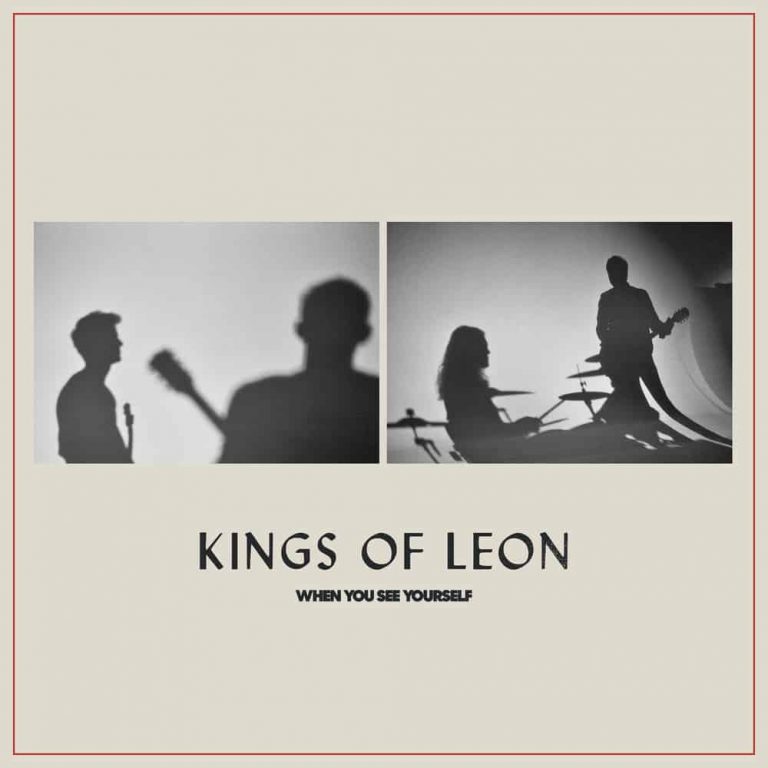Among the many bizarre arcs of millennial band narratives, few were more unexpected than Kings of Leon going from teenage Southern rock revivalists to Armani-clad arena rockers – the type that would illicit sceptical eyebrow raises from the very people that grew up with them. Something about their artistic development just didn’t seem to make sense. Drifting from the rootsy rock of their 2003 debut, Youth & Young Manhood, to the Television guitars and Lou Reed attitude of New York-channeling follow-up, Aha Shake Heartbreak, and then on to Because of the Times’ harsh Pixies-infused post-punk was an organic development that gave the era three of its best records.
But, after splitting with producer Ethan Johns and partnering with Angelo Petraglia, the Followills released the strange Only by the Night, which tried to bridge experimental sound concepts with bombastic, anthemic singalong rock. Consequently, hit single “Sex on Fire” gave them mainstream success, but also divided their fanbase. This progressively more Californian sound was expanded with Come Around Sundown, whose Wave-influenced lead single “Pyro” sounded like a song by The Chameleons. Shifting more records than before, the quartet seemingly steered into personal drama, with vocalist Caleb Followill’s public breakdown during a 2011 show making headlines. By that point, most critics and old fans had written off the quartet, and neither the 2013 ‘return to roots’ album Mechanical Bull nor the solid genre collage Walls made big impacts in the wider music world. But wow, they sold well.
This odd shift back and forth between experimental vanguard, bombastic feel good rock, dysfunctional family drama and well-dressed cosmopolitan troubadours somehow seems necessary to understand When You See Yourself, the band’s eighth album and best in more than a decade. As a unit, Kings of Leon have experienced pretty much every side of the business, and tried every sound their core aesthetic would allow them. Thus, anything they produce at this point is in direct dialogue with their own achievements and failures, especially artistically – in other words, the album’s title functions as a mission statement of self reflection. So instead of resuming the scattershot, individual sonic one-offs on Walls, the Followills instead concentrated their effort on an organic sounding album that allows them to cautiously interweave surprise elements with each composition.
Mid-album highlight “A Wave” is a good indicator of this strategy. Ultimately a typical Kings of Leon track – a nostalgia-laced ballad that builds into the triumphant refrain – it is aided by a very unique guitar tone. You can practically see the four experiment with pedals and go “Hey, that sounds like a cool synth tone, let’s put that there.” It doesn’t make the song’s structure more unique, but it’s a hook that stays with the listener.
It’s a clever approach, because even if some of the songs here could have been written at any time of the band’s career, packing them with as many hooks and memorable moments as possible ultimately enriches them. The absolute highlights of this approach are “Golden Restless Age”, “The Bandit” and “Echoing”; rock tracks that structurally have more in common with power pop songs. “Golden Restless Age” mixes slight melancholic longing with a central riff and gradually building synthesizers that wouldn’t be out of place in a song by The Cars – it’s just the right mix of rough distortion and gloss to not feel too slick, while also working as an (indie) disco track.
“The Bandit”, with its prominent rhythm section and faintly-veiled guitars could be a throwback to Because of the Times. There’s a nice live-sound feel to it, which works especially well during the chorus. It’s a muscular and boisterous song, as good as any Kings of Leon track of their past. “Echoing” is a tricky one: constructed like a prank, the song’s structure, with its breakdown during the chorus and galloping drums, seems to lead towards a big catharsis, which comes right after the three-minute mark, only to end just as it started. It’s kind of a tease, but its sudden ending functions like a hype-up and will very likely be a live favourite. It also marks the return of Caleb’s Lou Reed-infused “I just can’t be bothered” songwriting style. And speaking of Lou: closer “Fairytale” sounds like a reverb-drenched “Take a Walk on the Wild Side” homage. On a lesser record, that could have come across as pretentious, but here – while the reference is a little overt – it makes for a very enjoyable finale.
The moments that actually feel a little lesser here – like “Stormy Weather” and “Supermarket” – are associated with the band’s more coastal sound. The tracks aren’t bad, but don’t feel all that special and sadly feature some pretty generic lyrics. It comes as no surprise that the latter of the two was written back in 2009. As far as ballads go, they’re just not all that exciting, especially not if compared to the country-infused “Claire & Eddie” and the synthesizer-led “100,000 People”, whose atmospherics and melodies are so much more engaging.
That said, there’s really not all that much to dislike here. Pretty much every song on When You See Yourself manages to convey what the past few Kings of Leon albums missed. This is an at times muscular, at other times breezy collection of songs, recorded with care, removing bombast and occasionally returning to the rough live sound of their early days. It’s the album the band should have released back in 2008, but maybe it took the ride on the dirt road to get back on the highway.

